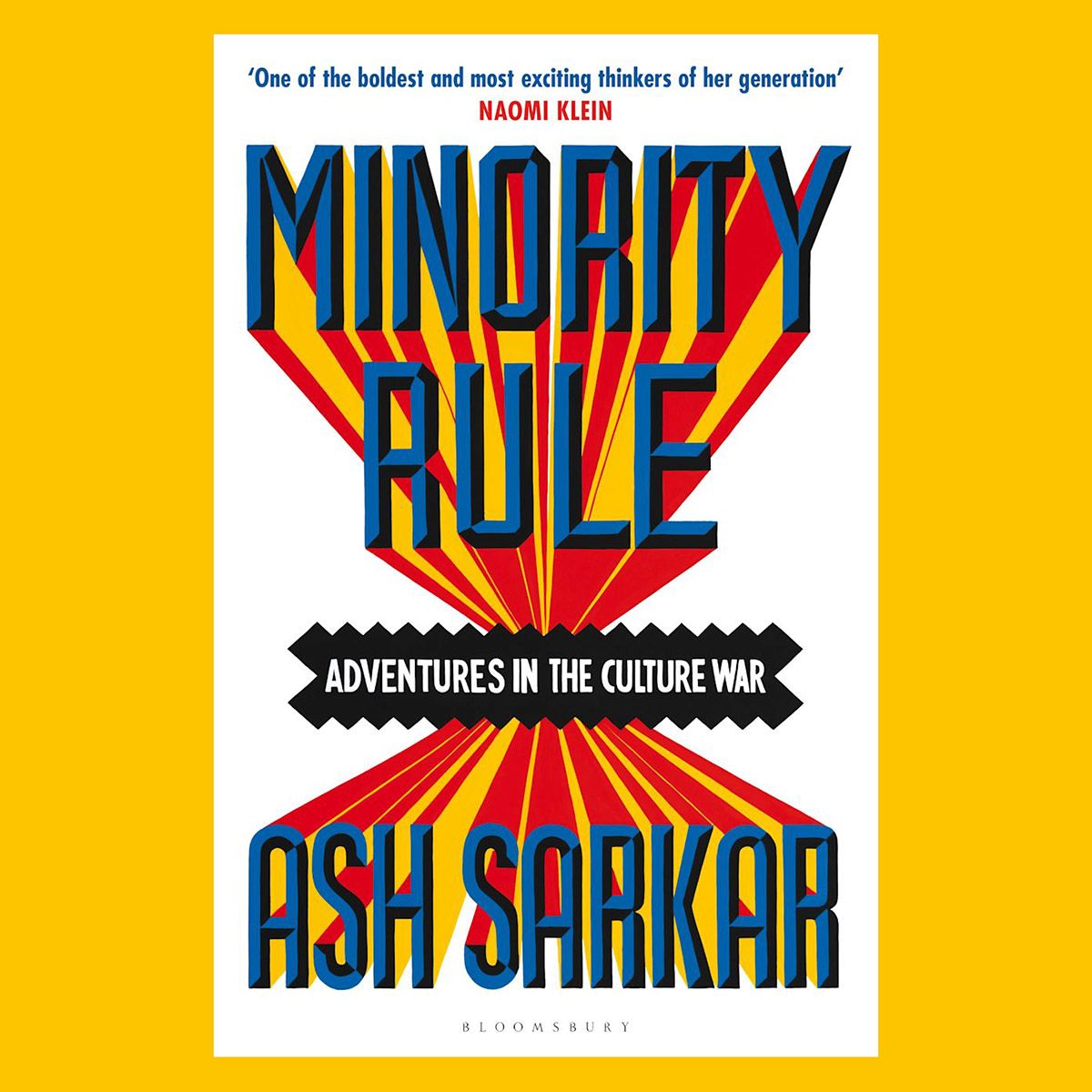The book tour for Minority Rule generated the kind of buzz most authors could only dream of. Ash Sarkar’s searing debut illustrates how culture wars keep most of the UK’s population divided. A prominent left-wing journalist, writer, lecturer and political commentator, Sarkar made headlines in the lead-up to the book’s release. “Woke is dead: this is the future of politics,” said PoliticsJOE of its interview with the author. “Woke is over,” echoed Novara Media, where Sarkar is a contributing editor. Leading politics podcast The News Agents declared the left was “DESTROYING ITSELF!” after having spoken with the author.
While Sarkar isn’t solely responsible for such headlines, the controversy they sparked online seems to prove her point that many people have got too lost in identity politics to effectively challenge the growing power and wealth of elites. “Today’s identity politics isn’t so interested in the material injustices of food, jobs, bombs and money,” she writes. “Instead, we find ourselves endlessly debating the terms of the debate. Language, though important, has taken on an absurdly elevated status.”
Sarkar is careful to clarify that she’s not critiquing the concept of intersectionality and the cumulative way in which multiple forms of oppression, such as racism, sexism and ableism, can overlap. She praises the work of the Combahee River Collective – a 1970s US organisation of Black feminist thinkers who coined the term ‘identity politics’ because they recognised that their struggle was different from that of white feminists.
Instead, Sarkar is questioning the vision of liberation offered by today’s mainstream – or liberal – identity politics. She argues that liberal identity politics is shaped by three central preoccupations: “the notion of irreducible difference between identity groups, the idea that identity groups have competing interests, and that lived experience is a form of unassailable political authority”. In contrast, she points back to the Combahee River Collective, who believed that the liberation of marginalised groups required dismantling capitalism and imperialism – not simply changing how different identity groups interact socially. Today’s identity politics, Sarkar contends, is too often centred around allyship and, at times, victimhood, rather than solidarity and a meaningful path towards a shared liberation from oppression.
While the limitations of identity politics are addressed in one chapter of Minority Rule, the rest of the book broadens its focus to challenge the narrative that marginalised groups – such as immigrants, LGBTQIA+ people and other minorities – threaten the majority. With her cutting tone and engaging analysis, Sarkar argues that this fear is irrational and is deliberately manufactured by a powerful minority of political and media elites, who fuel moral panic to distract from real social issues and maintain control. No, “immigrants aren’t eating your pets, trans activists aren’t corrupting your children, and cancel culture isn’t crushing free speech,” the blurb states. The book also explores unethical media practices, biased lobby journalism, and a rigged economy. The chapter on societal unrest and the efforts to suppress it stands out as one of the strongest.
Though the media coverage of Minority Rule may give the impression that what Sarkar has written is highly controversial, it is not. The author’s no-nonsense polemic adds to (sadly) the growing literature analysing modern inequality, much of which reaches similar conclusions about the need for unity, economic justice and radical thinking about what else is possible. Yet it is Sarkar’s encounters with the very issues she describes that make this text stand out. Her ability to weave anecdotes into her theoretical framework is a reminder that the fight for justice is not only necessary, but deeply personal, for her and all of us.
Minority Rule: Adventures in the Culture War by Ash Sarkar. Bloomsbury, 2025. ISBN: 1526648334








